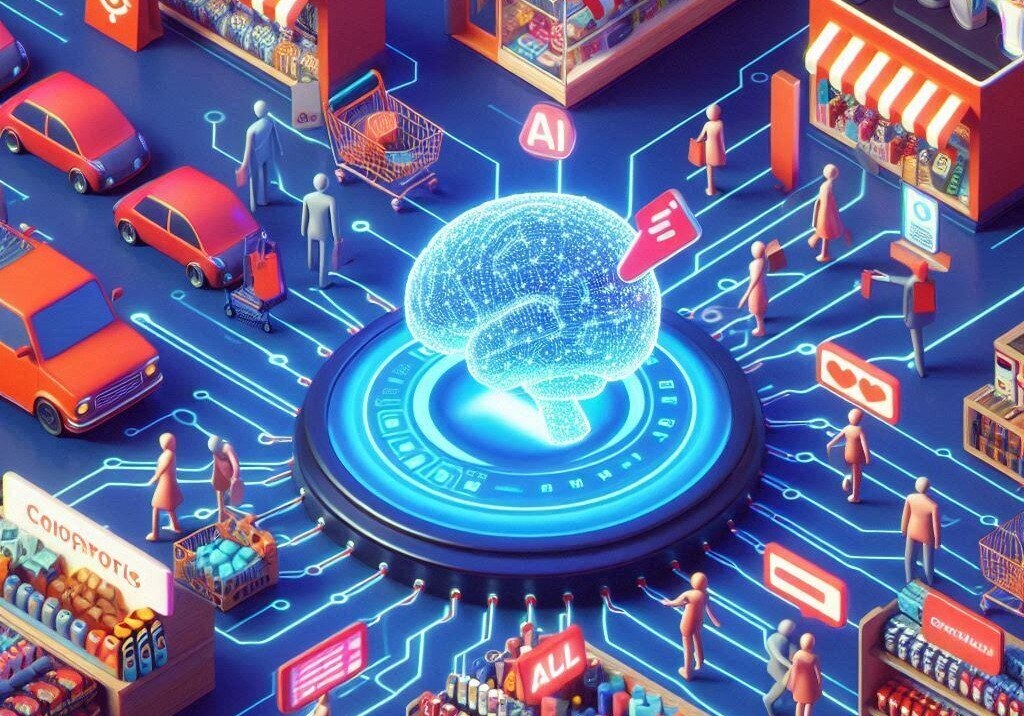AI in Travel: Redefining the Way We Explore the World
The integration of Artificial Intelligence (AI) into the hospitality sector marks a significant shift in how hotels deliver customer service. For example, dynamic AI powered pricing algorithms now enable hotels to adjust room rates in real-time based on demand, weather, and local events, ensuring that guests receive the best possible rates tailored to their needs.
As the hospitality and tourism industry rapidly evolves, businesses are not only adopting innovative tools but also setting new standards for guest experiences and personalized travel solutions.
In this context, understanding the power and potential of AI isn't just beneficial; it's crucial.
The Economic Impact of Tourism
Tourism is a major driver of the global economy, contributing 10% to the global GDP in 2023. This contribution is expected to grow by 10%, reaching $11.1 trillion in 2024 and surpassing pre-pandemic levels. In Europe, tourism contributes similarly, making up 10% of the GDP and playing a crucial role in economic stability and job creation. Spain, in particular, stands out, with tourism accounting for 12.8% of its GDP, amounting to €186.6 billion. With a projected growth rate of 7.5% in 2024, the sector’s significance to the Spanish economy is further underscored (Pernice).1
Emerging Trends in Tourism
As the tourism industry continues to evolve, several emerging trends are reshaping the landscape. Understanding these trends is essential for businesses seeking to adapt and thrive in this dynamic environment.
-
Bleisure: The fusion of business and leisure travel, known as "bleisure," is redefining travel patterns, fundamentally changing how business travel is approached. Nearly 50% of travel professionals have noted a rise in bleisure trips, highlighting a shift towards combining work with leisure (López).2
-
Digital Nomadism: The rise of the digital nomad lifestyle—where individuals work remotely while exploring new destinations—continues to grow. Over 17 million American workers now identify as digital nomads, a 131% increase since 2019, supported by the expanding availability of digital nomad visas worldwide (Eckhardt, Giana, and Aleksandrina Atanasova).3
-
Mobile Bookings: The way we book travel has been transformed by digital advancements. Statista reports that 80% of global travelers now prefer online bookings, with Millennials and Gen Z leading this trend. By 2028, online sales are projected to account for 76% of tourism revenue, reflecting the shift from traditional booking methods to AI-driven platforms.4
-
Smart Tourism: Smart tourism is emerging as a key component of the digital travel landscape. A global statista report from October 2023 indicates that just over 20% of travelers currently use AI chatbots for trip planning. However, AI adoption varies significantly by region: over 60% of travelers in the U.S. and 40% in India use AI for planning, while less than 10% in the UK and Japan do so. This regional disparity highlights the need for tailored strategies to address diverse market needs effectively.5
-
Personalization: Personalization is no longer optional—it's essential. According to Think with Google, 57% of travelers expect customized offerings based on individual preferences and past behavior, making tailored experiences essential for enhancing traveler satisfaction and encouraging repeat business (Tsvetkov).6
-
Sustainability: In the post-COVID-19 world, sustainability has become a key focus for travelers, driving them to seek out companies that prioritize environmental responsibility. Embracing sustainable practices not only attracts eco-conscious customers but also builds long-term trust and loyalty (Tsvetkov).6
AI Adoption in Travel and Tourism
How AI is Used in the Industry
AI is increasingly integral to the travel and tourism industry, with significant tech investments in artificial intelligence (AI) and machine learning (ML), making up 65% of the global travel and mobility sectors' tech investments between 2018 and 2024. This interest extends to hospitality, where AI is enhancing both operational efficiency and guest experiences.
AI's transformative impact is evident in various applications, from optimizing itinerary suggestions and flight rescheduling to improving revenue management and guest interactions. For instance, Hilton Worldwide’s AI concierge, "Connie," offers local tourism suggestions and information, enhancing the guest experience with data-driven insights.
Major industry players are also integrating AI to advance their services. In February 2023, Trip.com launched TripGen, an AI-powered chatbot for personalized travel recommendations. Kayak and Expedia introduced ChatGPT plugins, while eDreams ODIGEO partnered with Google's Bard. Airbnb also acquired GamePlanner.AI to enhance its platform. These advancements highlight the industry's commitment to leveraging AI across travel planning and operations. (Statista).
Opportunities to Implement AI in Hospitality
AI and machine learning can significantly enhance property operations in hotel chains worldwide. Some key opportunities include (Statista):8
-
Predictive Modeling: For environmental protection using energy, water, and waste-monitoring tools.
-
Maintenance Cost Reduction: Through predictive techniques.
-
Automated Room Assignment: optimize room allocation by analyzing booking patterns and guest preferences, improving operational efficiency and guest satisfaction.
-
Predictive Staff Allocation: For more efficient human resources planning.
By embracing these technological advancements, the travel and tourism industry is poised to navigate the future with greater efficiency and personalized service, ultimately enhancing the overall travel experience.
Need expert support for your AI transition? Book a free consultation with our specialist today and discover how AI can streamline your processes and drive growth for your company.
Use Cases
Dynamic Pricing: Adjusting in Real-Time
Ever wondered why flight or hotel prices fluctuate daily on booking sites? This is dynamic pricing at work. AI algorithms adjust room rates based on real-time conditions like special events, competitor behavior, weather, and supply and demand(Minnaar).9 Consider the Bliss Boutique Hotel. It adapted its pricing strategy to changing traveler behaviors. With a rise in last-minute bookings and "bleisure" travel, the hotel increased rates by 15% for bookings made within 48 hours and offered a "Stay & Play'' package with a 10% discount for extended stays. To attract midweek leisure travelers, the hotel reduced rates by 10% on Tuesdays and Wednesdays.
Using a real-time revenue management system, the hotel adjusts rates based on occupancy and competitor pricing, applying flash sales of up to 20% during low occupancy and raising rates by 20% when over 80% booked. These strategies increased average daily rates (ADR), revenue per available room (RevPAR), and mid-week occupancy rates (Elphick).10
Enhancing Customer Service: AI Chatbots and Assistants
AI chatbots on hotel websites and social media platforms provide instant responses to guest queries, greatly improving the booking experience. For instance, Accor Hospitality Group collaborated with Amazon Connect to enhance customer service and support its employees. Amazon Connect offers a streamlined solution, including Contact Lens technology, which acts as a personal assistant to agents by analyzing conversations in real-time and providing recommendations.
This has significantly improved customer satisfaction, now at 97%. By focusing on creating an emotional connection and seamless experience from the first interaction, Accor ensures guests feel engaged and valued, transforming routine transactions into memorable experiences (Amazon).11
How to Stay at the Forefront of this Shift
The future of hospitality is full of potential opportunities. As technology continues to advance, AI will play an even more significant role in transforming the way hotels and resorts operate. To successfully implement AI-driven transformation, consider these steps:
- Conduct a detailed technology audit and assessment of your business. Need expert support for your AI transition? Book a free consultation with our specialist today and discover how AI can streamline your processes and drive growth for your company
- Form an AI integration team with members from various departments.
- Identify the areas where AI can add the most value to your business.
These preliminary steps are not just preparations; they are the foundation of your hotel’s AI-driven transformation.
By embracing AI, you can enhance efficiency, personalize service, and ultimately provide a superior experience for your guests.
Ready to transform your customer service with AI? Book a free consultation with Crata AI today and discover how our tailored solutions can enhance your customer experience and boost efficiency. Let's unlock the potential of AI together!
References
[1] Pernice, Davide. “El Turismo: Fichas Temáticas Sobre La Unión Europea: Parlamento Europeo.” Fichas Temáticas Sobre La Unión Europea | Parlamento Europeo, May 2024, www.europarl.europa.eu/factsheets/es/sheet/126/el-turismo#:~:text=El%20turismo%20constituye%20una%20actividad,declive%20econ%C3%B3mico%20y%20el%20desempleo.
[2] López, Ana M. “Topic: Bleisure Travel.” Statista, 29 Jan. 2024, www.statista.com/topics/11885/bleisure-travel/#topicOverview.
[3] Eckhardt, Giana, and Aleksandrina Atanasova. “The New Reality of Digital Nomads.” Harvard Business Review, 6 Feb. 2024, hbr.org/2024/02/the-new-reality-of-digital-nomads.
[4] “Topic: Digitalization of the Travel Industry.” Statista, 6 May 2024, www.statista.com/topics/7589/digitalization-of-the-travel-industry/#topicOverview.
[5] “Topic: Artificial Intelligence (AI) Use in Hospitality.” Statista, 10 June 2024, www.statista.com/topics/12390/artificial-intelligence-ai-use-in-hospitality/#editorsPicks.
[6] Tsvetkov, Trifon. “12 Tourism Trends That Will Shape the Travel Industry in 2022 and Beyond.” Regiondo, 30 Nov. 2023, pro.regiondo.com/blog/tourism-trends-2018-2/.
[7] “Topic: Artificial Intelligence (AI) Use in Travel and Tourism.” Statista, 7 Mar. 2024, www.statista.com/topics/10887/artificial-intelligence-ai-use-in-travel-and-tourism/#topicOverview.
[8] “Ai Opportunities in Hotel Operations Worldwide 2023.” Statista, 4 Mar. 2024, www.statista.com/statistics/1453892/ai-opportunities-hotel-property-operations-worldwide/.
 By
By



